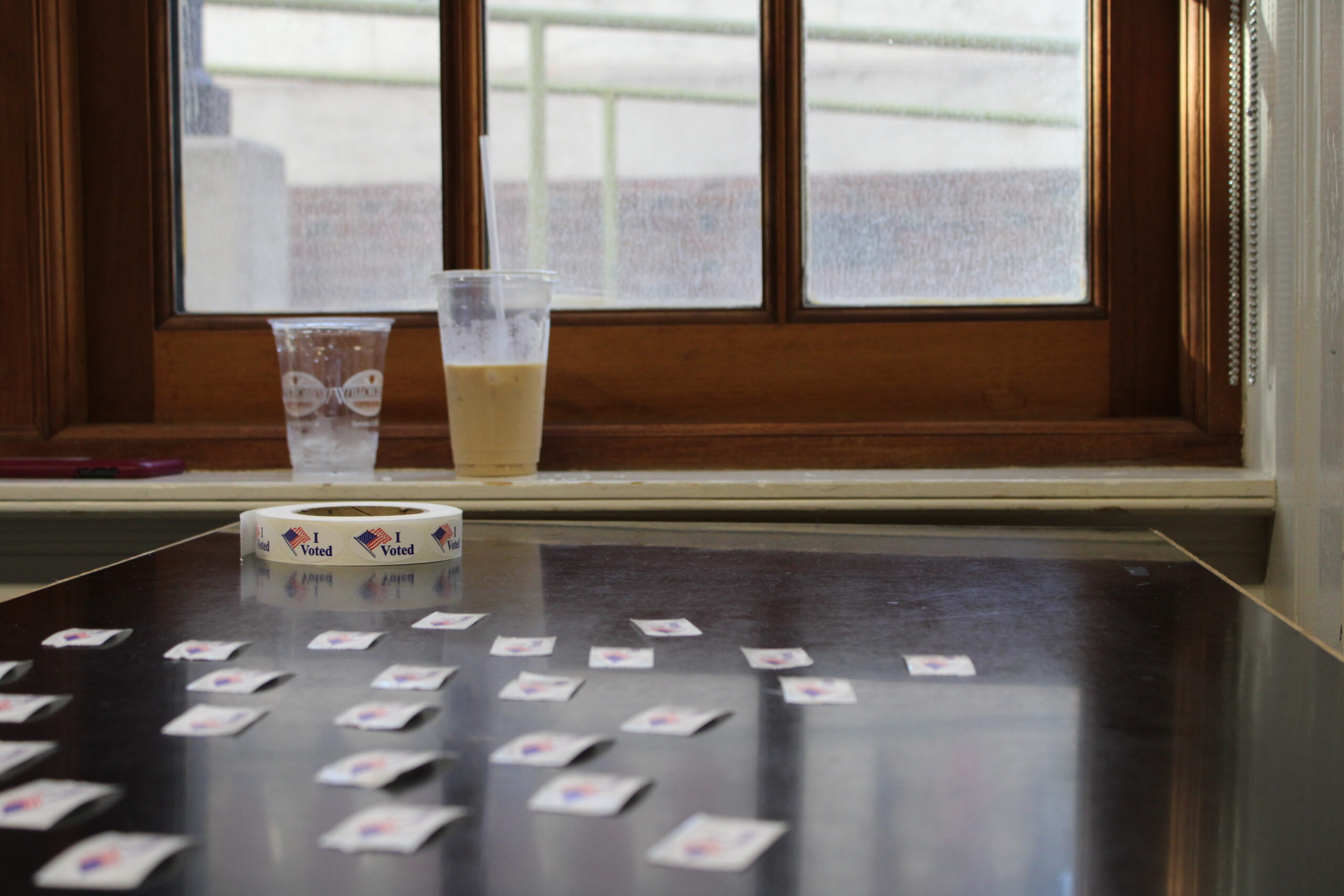Trump’s victory will forever change the two parties, Yale professors say
Yale professors weigh in on the future of the Democratic Party, the role of liberal activism and democratic integrity in a shifting political landscape.

Baala Shakya, Contributing Photographer
On Nov. 5, millions of Americans voted former President Donald Trump into another presidential term. Trump won both the popular and electoral vote, decisively defeating Democratic nominee Vice President Kamala Harris.
Yale professors emphasized historic political realignment at a post-election panel and in conversations with the News and expressed concerns about the future of American democracy. However, they believe there is just more work to do after the election.
“We are seeing a realignment, but I would actually be more dramatic about it,” professor Joanne Freeman, who specializes in early U.S. history, said. “I don’t think there is a Republican Party anymore. The Democratic Party is there, but it doesn’t know what it is.”
Professor Beverly Gage ’94, who specializes in 20th-century U.S. history, observed a similar shift, though she stopped short of suggesting that the parties had entirely lost themselves. Gage thinks that the Democratic Party will have to reinvent itself “in a really fundamental way” to reconnect with American voters.
The academics disagreed on how exactly the Democratic Party could reform. Professor James Forman Jr. LAW ’92, who specializes in criminal justice, suggested that the party needed to focus on creating a new coalition and protecting the rule of law.
“My great fear now … is that we might not have another election that is going to allow the democratic process to play out in any kind of meaningful way,” Forman said. “The [future of] the party all depends on if a new coalition can form and express its will.”
Professor Elizabeth Hinton, who specializes in 20th-century U.S. history, has a slightly more optimistic outlook about the future of the Democratic Party. Hinton thinks that the party can rebuild but feels that she will not “see the fruits of that labor in [her] lifetime.”
Hinton pointed to how during Donald Trump’s first presidency millions of Americans organized to protest his policies and developed new “tactics of resistance.” According to Hinton, these Americans resisted building an America that aligned with Trump’s vision.
“[We] are not going to retreat as a result of this, but [we] are going to follow our ancestors and oppressed people,” Hinton said. “[We] are going to fight, not just by protesting, but by fighting in the courts [and] engaging in new kinds of scholarship.”
Election night results, polling issues
Going into election night, professor Kevin DeLuca, who specializes in political institutions and the political economy of media, was thinking about two things: whether the polls were underpredicting Trump, which he said “always do,” and how Democrats would perform in swing states, compared to their national results.
“Every model prediction basically showed it was going to be very close,” DeLuca told the News.
Now that the presidential race has been called for Trump, DeLuca thinks the polling industry, which suggested the election would be very competitive, needs to “process and learn from” its mistakes.
DeLuca does not necessarily attribute Harris’ loss to campaign failures. He believes that the Harris campaign was well-funded and organized but that “the size of the trend towards Republicans in this election” points to other factors at play. According to DeLuca, the campaign’s efforts “were too small to make a difference” in that trend.
“When I see this huge shift towards Republicans, that makes me think there’s dissatisfaction with what [Americans] have at the moment,” DeLuca told the News. “People feel the economy is not good, though I would say it’s good [based on] historical stimulus.”
Gage believes that Harris’ loss may have been a long time coming, partly attributing it to the party’s failure to support the labor movement, which she says has “eroded and died over the last 50 years” to the party’s detriment. She also suggests that “many people think that Democrats have not delivered on the things that they have promised.”
The next few years
With the House of Representatives and Senate likely to both fall under Republican power, DeLuca questions how effective traditional checks on presidential power will be.
“If Congress is controlled by Republicans, that’s not an effective check,” Deluca said.
DeLuca acknowledged that, in theory, public opinion, media and the potential for losing future elections could serve as restraints, but he was skeptical about their ability to effectively reign in presidential power compared to government self-regulation.
DeLuca also expressed skepticism about the Supreme Court limiting executive overreach under a Trump administration, considering its current conservative makeup.
Other academics shared similar concerns, suggesting that liberal Americans need to step up with their advocacy to address what they consider threats to our democracy.
“I did not sign up to be an activist, and somehow, in recent years, I’m out speaking to undecided voters in swing states,” Freeman said. “I am an activist in ways that I never imagined in a million years, [because] … the threat is in front of us, you can’t deny it.”
Hinton said that she “chooses to turn [her] fear into fuel and fight.” She suggested that other liberal Americans do the same.
DeLuca acknowledged that many Yalies are upset with Trump’s victory but believes that such reactions are a natural part of politics. Unlike the other academics, DeLuca thinks that claims about the death of democracy and this being the last election are overblown.
“Yale students who are disappointed [should know] that part of politics is dusting yourself off, suiting up and getting back in the ring,” DeLuca said. “There’s still a lot of work to do if you’re unhappy with the results. I think it’s good to recuperate and take care of yourself and your friends. There will be another day, and there’s work to do.”
Americans will head to the polls again in 2026 for the Congressional midterms.







